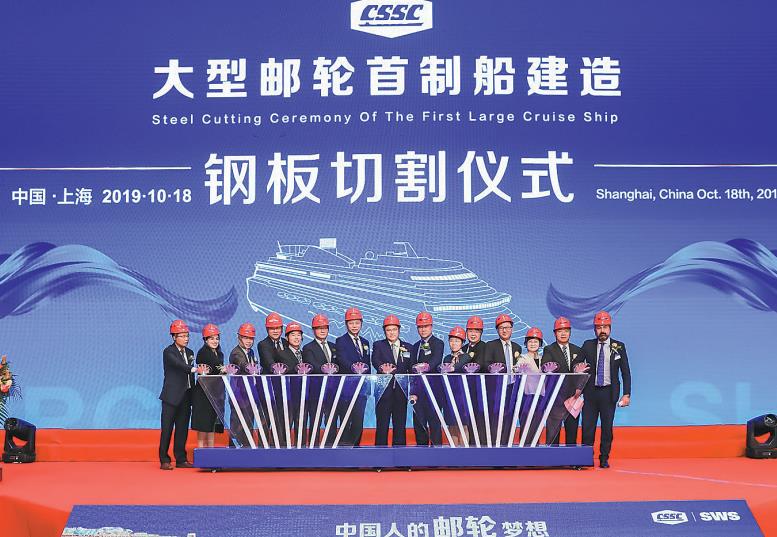Cruise ships to bolster high-end manufacturing


In the meantime, the company has poured 1.86 billion yuan ($265 million) into the reconstruction project to meet the requirements of cruise ship building.
"The cruise liner will consist of about 70 public areas, and each of them contains numerous systems that have to coordinate with each other to guarantee the areas' normal functioning," Zhou said.
Due to the complexity of cruise ship construction and operation, the nation's domestically made cruise ship will be jointly built and managed by Chinese and international industry leaders, Zhou said.
A design and construction cooperation agreement was signed by CSSC, Carnival and Fincantieri during the China International Import Expo last November. Under the agreement, the first of the two 135,500-ton domestically made cruise ships is scheduled for delivery in September 2023 and the second in 2024.
Two joint ventures were created by CSSC and Carnival, the world's largest leisure travel company, and CSSC and Italy-based Fincantieri SpA, the world's largest cruise ship building company.
CSSC Carnival Cruise Shipping Ltd will be responsible for providing expertise in cruise management and operation, and CSSC-Fincantieri Cruise Industry Development Ltd is tasked with the design of the cruise ships.
"Our collaborations with our foreign partners are targeting the new demand coming from China, without any competition," said Wang with CSSC Cruise Technology Development.
"We are carrying out in-depth cooperation and collaborative development with both Carnival and Fincantieri," he added.
Currently, three major European shipyards - Fincantieri, Meyer Werft and Chantiers de l'Atlantique - hold 68 percent of all cruise ship orders worldwide, according to CSSC Cruise Technology Development.
The fact that the annual delivery capacity of about seven against the demand for some 15 cruise vessels leaves substantial room for shipbuilders with the ambition and capability to participate.
"The cruise ship building industry we are going to jointly develop in Shanghai will create job opportunities, establish a new supply chain, increase procurement opportunities, and promote technology innovation," said Chen Ranfeng, chairman of Carnival in China.
"Opening-up and collaboration do not conflict with innovation on one's own. We will make innovations in our products, but that does not mean we have to do all the work by ourselves. As a matter of fact, it would be better if we get the work done by working together," said Wang.
Chen said the economic multiplier effect will be further improved.
"I am sure through the application of high-end and new technologies, and more practices, China's high-end manufacturing capabilities will be further upgraded," he said.




































